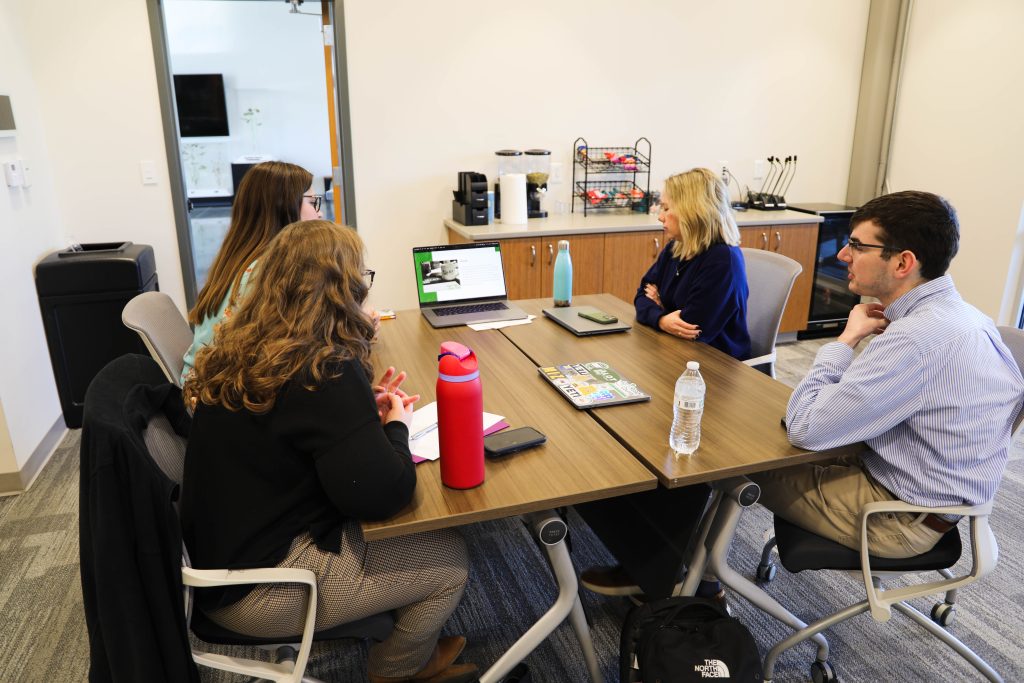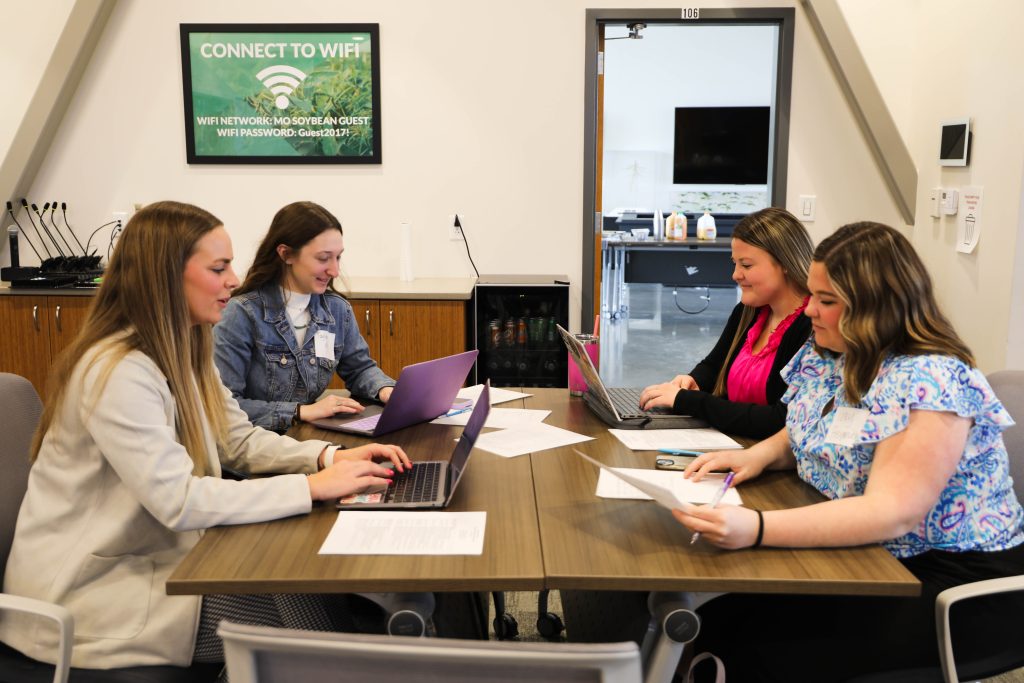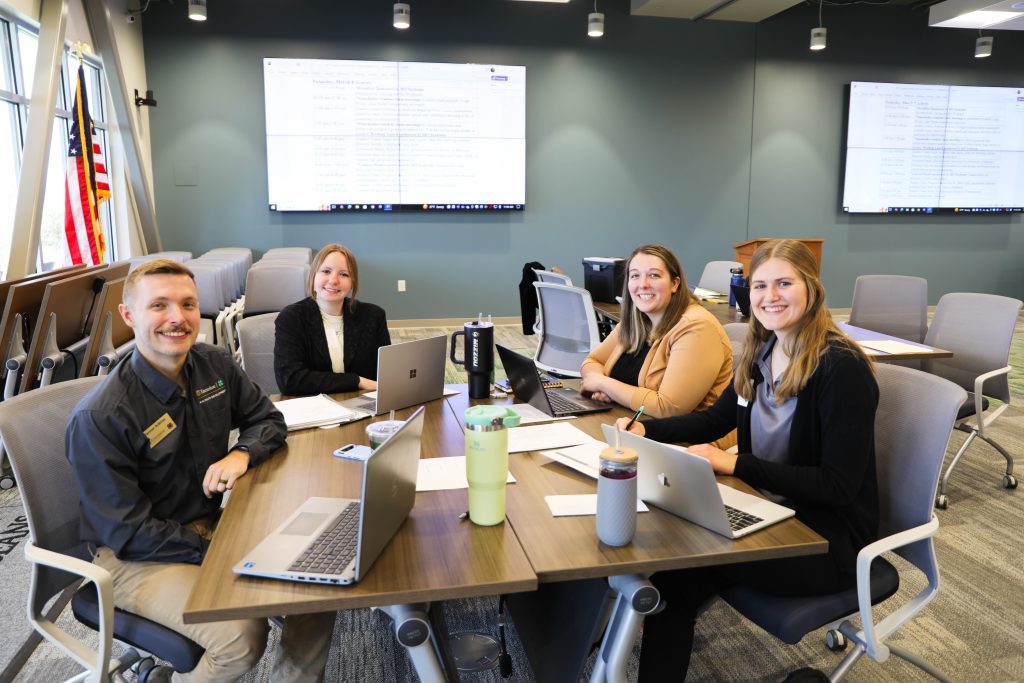
On March 8 and 9, students from Rebecca Mott’s program development course gathered at the Missouri Soybean Association for a weekend with agricultural industry stakeholders to serve their program development needs.
During the first eight weeks of the course, students identify a program idea they would like to flesh out individually to prepare them with the basic program development skills they will need to work with an agricultural stakeholder later in the semester. This year, their individual program ideas ranged from a floral design program for adults in rural communities to an onboarding program for newly elected officers in a campus organization. These preparations readied them for what Mott calls “Program Development Launch Weekend,” where students go to work with a real agricultural client in need of a new program or a major revision of an existing program.

Clients this year included the Missouri Corn Growers Association, Missouri Soybean Association, MU Extension, Missouri Agricultural Leadership of Tomorrow (ALOT), and Missouri Farm Bureau. The client needs featured a wide variety of programs and audiences. After listening to the clients describe their needs and, working directly with a representative from their assigned agricultural industry partner, student groups implemented their classroom practice to design a real program. No two clients have the same needs, so each group receives a unique real-world experience. For example, Missouri ALOT requested a new kind of fundraising tool/plan/effort targeting ALOT alumni.
“Working directly with Lucinda McRoberts, Executive Director of Missouri ALOT, allowed me to see firsthand how the concepts we study in class translate into real-world possibilities,” said Teagan Engle, junior agricultural education major. “I learned how diverse perspectives from industry leaders to community members come together to shape impactful solutions. I loved having an opportunity to sit down with Lucinda and discuss a way to make an impactful program that will help her organization continue to succeed and thrive.”
Engle’s group, which also includes Karson Calvin, junior agricultural education major, and Sydney Winn, agricultural education and leadership graduate student, are creating a trifold brochure that ALOT can use for marketing and fundraising, along with narratives for those giving the fundraising pitch to follow, in hopes that the fundraising will continue beyond ALOT alumni.

“It was rewarding to see how intentional planning, active listening, and strategic thinking can help strengthen an organization and create lasting, positive change,” said Calvin.
Stakeholder weekend is just the beginning of development process. During the remainder of the semester, students will flesh out their clients’ programs and present their final plan to their industry clients as the final class project.
“This is an amazing opportunity for the students to be able to work on real-life, meaningful projects that will actually be taken and used by the industry,” said Mott. “To engage in that real-world context and be treated like professionals raises the standard for them. They perform at a higher level because they are receiving that feedback. The other part of this course that is really fun for me is that many of these stakeholders have now been through the class themselves as students, and have now come to me requesting to be a stakeholder for this event because they understand the value of the program from their own experience as a student, which makes our industry partnership even better.”
“Collaborating with the CAFNR students in Dr. Mott’s program development class to design a comprehensive fundraising strategy for ALOT has been an incredibly rewarding experience,” said McRoberts. “Teagan, Karson and Sydney heard and understood my goals and ideas and then made them better. Their creativity, fresh perspectives, and dedication–not just to their success in the classroom but also our organization’s mission–will help fuel ALOT’s growth for years to come. Working alongside them has not only empowered our organization but also reinforced the importance of mentorship and the value of young voices in shaping the future of Missouri agriculture.”